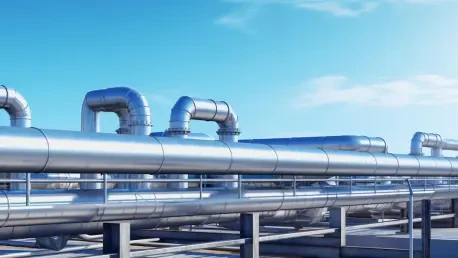The European Union is on a decisive path to end its dependence on Russian gas by 2027. This strategic transition is driven not only by recent geopolitical tensions but also by the EU’s ambition to reshape its energy matrix toward greater sustainability and autonomy. As this historic shift unfolds, the implications resonate through energy markets, challenging existing paradigms and inspiring innovative solutions.
Context and Importance
The EU’s decision to phase out Russian gas imports comes amidst growing political and economic pressures stemming from Russia’s actions in Ukraine. Historically reliant on Russian energy, the EU now aims to safeguard its energy security and mitigate geopolitical vulnerabilities. By crafting a comprehensive plan to eliminate Russian gas imports, the EU sets a precedent in global energy policy, underscoring its commitment to a diversified and resilient energy future.
Detailed Market Examination
The EU’s strategy involves implementing a gradual ban on Russian gas and LNG imports, beginning with new contracts in 2026 and extending to existing long-term agreements by 2028. This structured timeline represents a careful balance between immediate energy security concerns and long-term independence goals. Companies with contracts extending into the 2030s confront legal challenges, as “force majeure” clauses may provide a path to navigate these contractual complexities, sustaining momentum in this transitional phase.
EU member states exhibit varied readiness levels for this transition, with Slovakia and Hungary particularly reliant on discounted Russian gas. These nations face unique economic hurdles, compelling them to explore alternative suppliers more efficiently than others. Comparatively, their experience highlights the economic disparities among member states during this energy shift. As Europe seeks to diversify, leveraging existing infrastructure to receive substantial LNG imports from regions like the United States can provide the necessary cushion.
Beyond natural gas, the EU’s focus on other energy sources reveals additional layers of complexity. While sanctions have curbed Russian oil imports significantly, Slovakia and Hungary remain exceptions. The EU pressures these states to develop strategies to exit Russian oil dependency by 2027, prompting discussions on reducing the reliance on Russian nuclear fuel. This complex maneuver requires innovative solutions, revealing regional disparities that impact the broader energy transition process.
Key Implications and Strategic Insights
Findings suggest the EU’s efforts to phase out Russian gas have profound implications for its energy policy, urging stakeholders to engage in proactive planning. The move emphasizes the importance of investing in energy innovation and collaborating internationally to maintain energy security. For businesses, reevaluating supply chains and adopting sustainable technologies emerge as crucial strategies to remain competitive in this evolving landscape. Governments may focus on fortifying infrastructure and stimulating alternative energy investments to support a more autonomous energy matrix.
Ultimately, the EU’s bold initiative to disconnect from Russian energy sources signifies a pivotal development, encouraging a broader discourse on resilience and sustainable energy solutions. Europe must engage in strategic partnerships and invest in future-oriented infrastructure to advance its energy independence agenda, fostering an environment conducive to long-term growth and geopolitical stability in the region. As the energy landscape transforms, opportunities for innovation and leadership in global energy policy beckon, challenging stakeholders to rise to the occasion.









